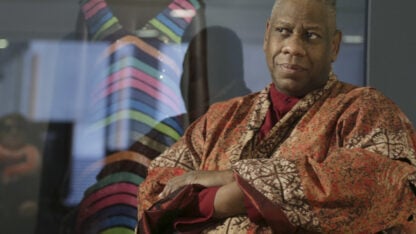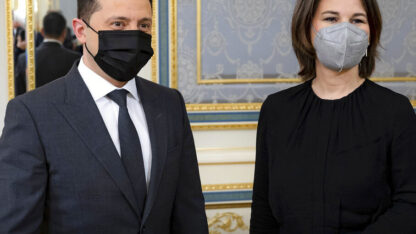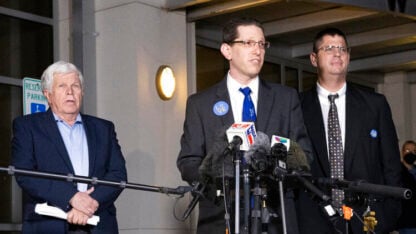Decatur Dinners Bring Neighbors Together To Talk Race
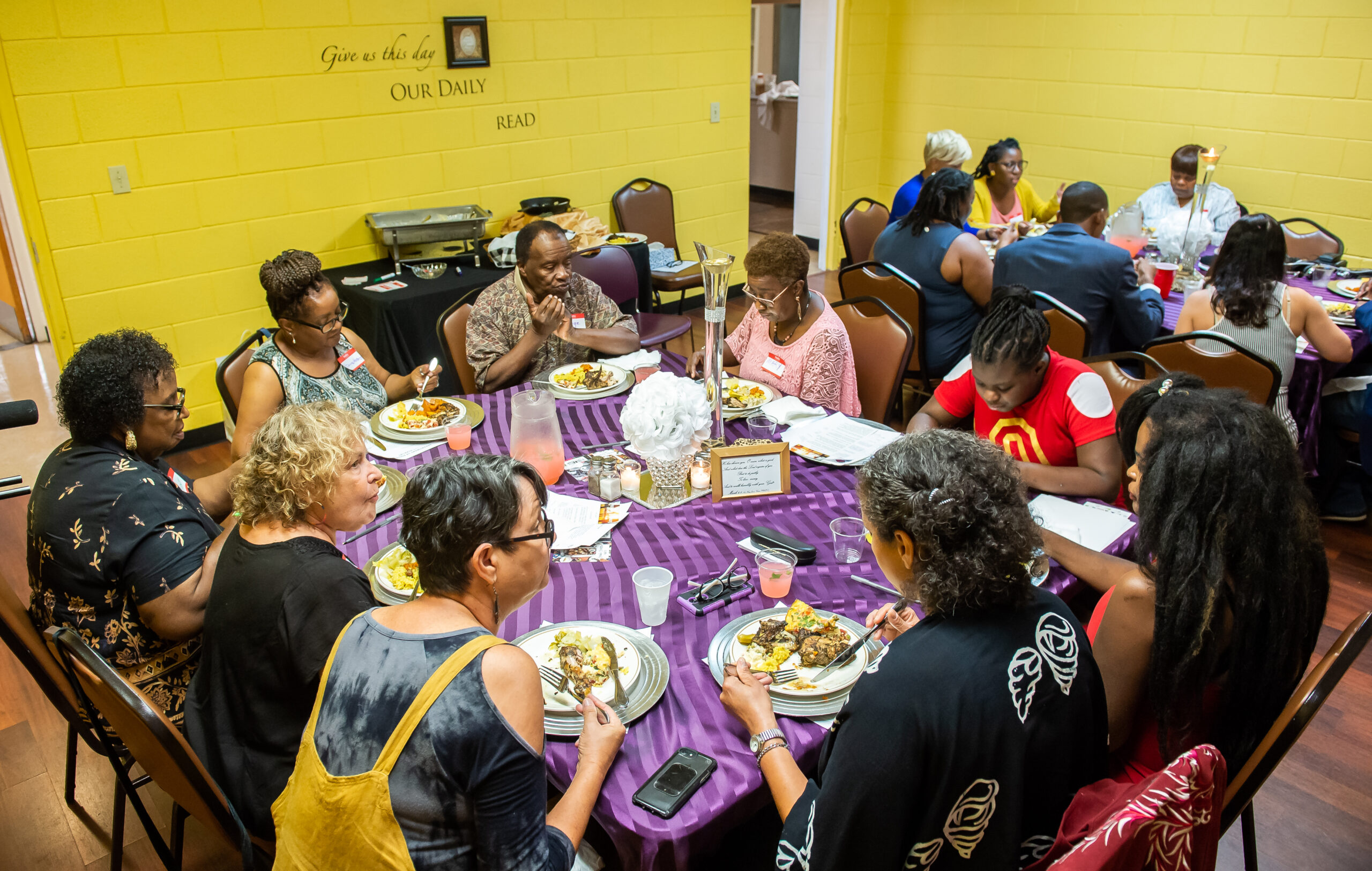
Decatur Dinners participants talk and share a meal at Columbia Drive United Methodist Church in Decatur on Sunday evening.
Bita Honarvar / For WABE
Can a dinner conversation overcome racial inequity?
Organizers of Sunday’s Decatur Dinners say if nothing else, it’s a good place to start. And its inaugural event turned out to be bigger than those organizers thought.
“It’s been amazing, the outpouring of support,” said Ariel Fristoe, artistic director at Out of Hand Theater and one of the event’s visionaries. “We’re actually having more than 100 dinners,” she added, noting more than 1,000 people participated.
One of the biggest logistical challenges, she said, was getting a diverse mix at every table, a feat not unlike planning for a massive wedding reception.
For the most part, Fristoe said, the nod to diversity worked.
Each of the 100-plus locations began the same way: one actor reading one performance written to serve as a catalyst for the ensuing conversations.
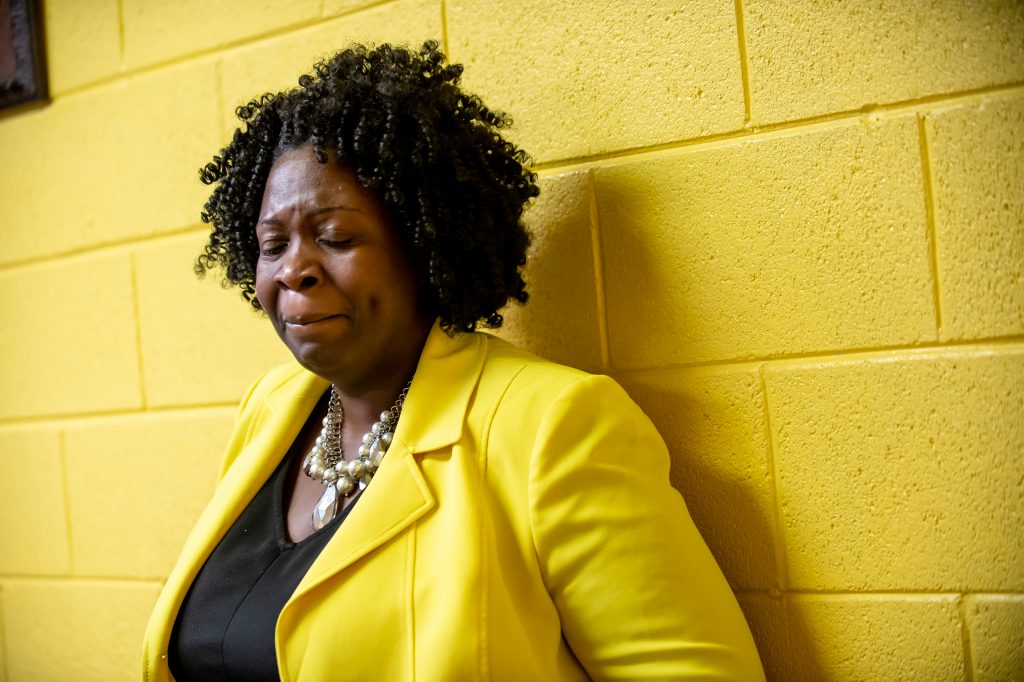
At Columbia Drive United Methodist Church, Micah Oliver delivered the lines.
“My son came to me the other week — my eldest son,” he said, offering long, pensive pauses between the words. “And he asked me, ‘Daddy, what does [the N-word] mean?”
At each table, one by one, participants shared something personal. Some were reserved; others, anything but.
“I lived in China,” said Shaneeka Favors, choking back tears. “It was my first time experiencing truly being free,” she added.
Favors went on to say that, for the first time in her life, someone who wasn’t black approached her to tell her she was beautiful.
“It was such a freeing experience,” she said, wiping her eyes.
She was just an American. Not just black, she said.
But that reality changed, Favors told her table, when she returned to the United States.
“And when I came back here? To have that taken away from me? I just want to escape and go back.”
The moment silenced the room in a way that would repeat itself for the entirety of the meal.
When it was over, participants embraced as they cleared plates — armed with an appreciation of how painful those notions can be when left unspoken.
